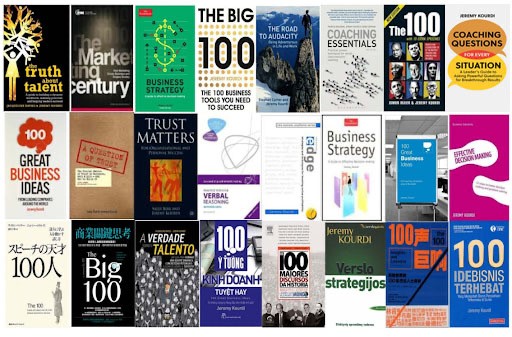By Jeremy Kourdi, below, director of Kourdi Associates
 The third decade of the 21st century is a time of paradox, and surely one of the most challenging is leading across cultures that are both stubbornly interdependent and tribal and insular. In practice, this means that now more than ever we need to lead across cultures, and yet we are ill-equipped to do so. The solution is twofold: above all, we need to make several mindset shifts, literally opening one’s thinking up to a world of possibilities. Second, arising from this mindset shift is the need to apply several practical techniques.
The third decade of the 21st century is a time of paradox, and surely one of the most challenging is leading across cultures that are both stubbornly interdependent and tribal and insular. In practice, this means that now more than ever we need to lead across cultures, and yet we are ill-equipped to do so. The solution is twofold: above all, we need to make several mindset shifts, literally opening one’s thinking up to a world of possibilities. Second, arising from this mindset shift is the need to apply several practical techniques.
Shift your thinking
When working across national cultures it helps to understand several key points. First, whereas leaders make decisions, international leaders reconcile dilemmas. They are adept at transcultural competence – the ability to reconcile seemingly opposing values and handle complexity, not merely adding or accommodating them.
Reconciling differences is achieved by looking for opportunities to derive value from each perspective, rather than favouring a single one. Reconciliation also means: avoiding compromise; being inclusive and inviting different views; communicating across cultural boundaries, and actively respecting the cultures you are working with. After all, every culture has its pros and cons and making the most of the strengths of a culture makes a huge difference.
This connects with the next point: people that are fearful or prejudiced of other cultures – or simply passionately obsessed and biased about their own – are disadvantaged when it comes to leading across cultures. The solutions are clear, and it starts with each individual.
First, challenge biases – yours and others – constantly; be open and curious, learning from and understanding other cultures (not only national but also generational).
Next, in this context as with so many others, genuinely believe in the value of what you are doing (the mission) and how cross-cultural leadership will enhance this.
Also, to lead in any culture requires an ability to focus on people. Consequently developing empathy, compassion and trust are vital.
The final mindset shift is the need to adopt an abundant (growth) mindset. This means building something new and looking for the opportunity lying in the intersection of cultures, connecting with the earlier point about the need to reconcile dilemmas.
Apply the right tools
Together with an open, goal-oriented mindset are skills that can help us succeed internationally. These include listening and questioning so you genuinely understand how people think and feel, not simply what they say.
Being clear about the vision matters too: it provides a rallying point that delivers connection, context, mutual support and challenge. It also accelerates progress towards the goal. This point links with the need to communicate, providing clarity, focus and direction.
Leading across cultures requires questions that build understanding – for example:
- How will you manage the differences you encounter?
- What are the most significant forces driving the current situation?
- What would make people feel at ease and build trust, and what would cause concern?
- How will you build understanding?
- Are you clear about your values, the non-negotiables?
- What changes and adjustments will you make to succeed?
- How will you adapt your mindset and behaviour?
A final thought. I am the son of a British mother and Palestinian father with British and Arab aunts and cousins. My daughter emigrated to the USA and became an America citizen, and my brother married a Chinese national, producing two fabulous Anglo-Chinese nieces. My friends include Swedes, Italians, Brazilians and others (I even know a few people from Yorkshire). So, what have I learnt from all this personal internationalism?
First, different cultures are an exciting source of ideas and insight. Second, the things that connect us are more significant than those that divide us. For example, we all feel the same emotions, we’re susceptible to the same viruses, we want to save the environment – the list goes on. Most significantly, I am not alone. Our times are riven with paradox but it is, for us all, a time of opportunity and progress alongside challenge and change. Despite short-term fears we really are only one human race, our future lies in working together, and we need to get much better at valuing differences and leading across cultures.
Jeremy Kourdi is an executive coach and director of leadership consultancy Kourdi Associates. Formerly VP of The Economist Group, he is an expert in leadership, business development & coaching and has written 29 business books.


